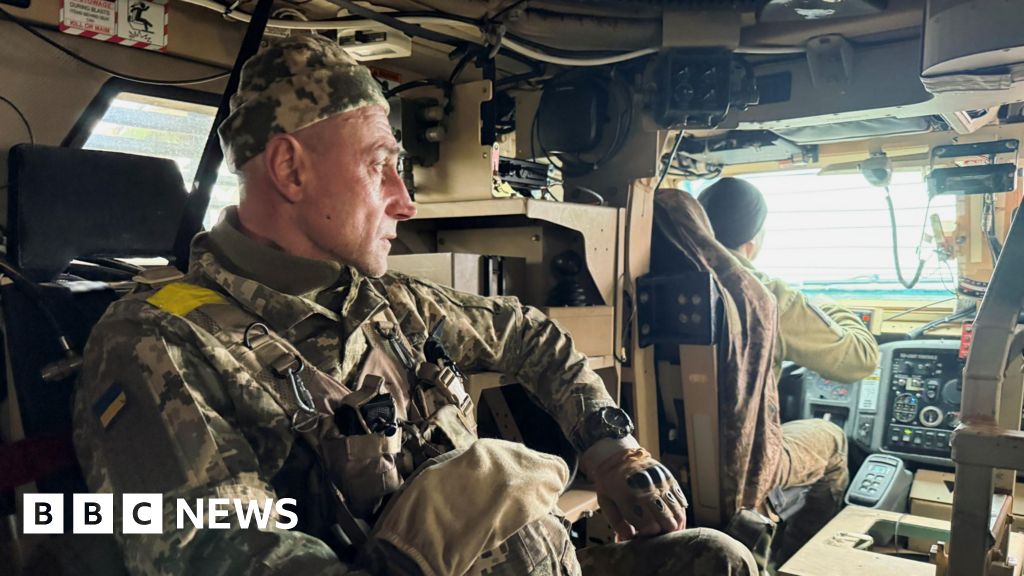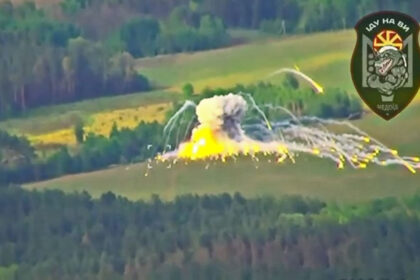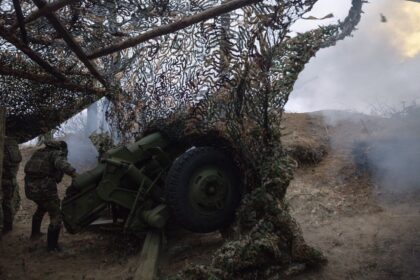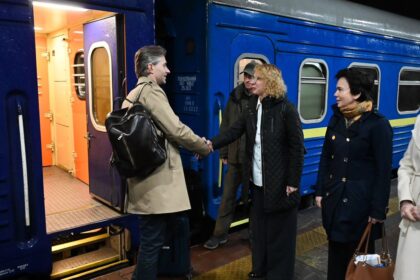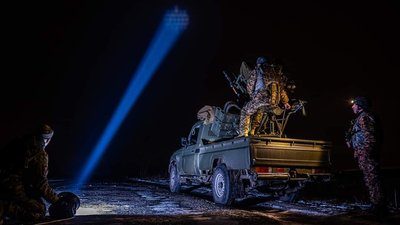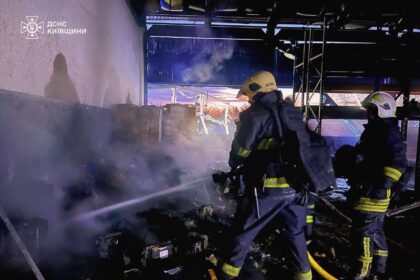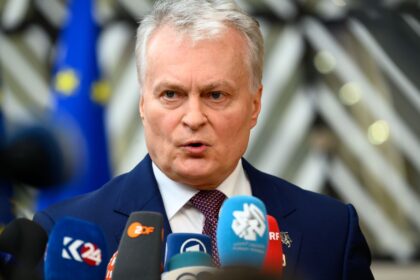**Ukraine’s War Rages On: Diplomacy and Despair**
As Moscow weighs the possibility of a temporary ceasefire, the harsh realities of war on the front lines in eastern Ukraine tell a different story. The injured keep arriving at hospitals, their bodies bearing testament to the brutal effects of bombs and bullets.
At a military hospital in eastern Ukraine, the ambulances bring in wave after wave of wounded soldiers. Among them are dozens of men hit by shrapnel, a common victim of the feared drone attacks that have become the norm on the front line. Despite rumors of a ceasefire, none of those interviewed believed it would come anytime soon.
“I consider Putin a murderer and murderers don’t agree so easily,” said Maksym, a 30-year-old soldier lying on a stretcher with several shrapnel wounds across his body. His skepticism is shared by many others, including Vova, who had been facing Russian storm attacks every day near the besieged city of Pokrovsk.
**The Disconnect Between Diplomacy and Reality**
Diplomatic negotiations can be a slow and difficult process, but on the battlefield, they can mean lost lives. The disconnect between diplomacy taking place far from the fighting and the brutality of battle is stark. While world leaders discuss ceasefires and peace agreements, soldiers like Maksym and Vova face the harsh realities of war.
The military hospital is a hub of activity, with medical staff working tirelessly to treat the wounded. Among them is Sofiia, a 22-year-old medical student who has been working with Ukraine’s Volunteer Army Medical Battalion for the last 18 months. She too is skeptical about the chances of a ceasefire: “I cannot believe it, but I really wish it would happen.”
**A History of Failed Ceasefires**
Ukraine has plenty of bitter experience of negotiating with Russia. France and Germany brokered ceasefires in 2014 and 2015, but they didn’t work. Nor did they deter Russia from carrying out its full-scale invasion of Ukraine eight years later.
Daniel, a medic who joined the Hospitallers from Sweden, understands what it’s like when a smaller nation is attacked by its giant neighbor. His grandfather fought for Finland against Russia during World War Two. History counts, and Daniel believes that Putin cannot be trusted to do anything beneficial to anyone but himself.
**The Cost of Failure**
Kursk may soon no longer be a bargaining chip for future negotiations, but a heavy burden with the loss of prized Ukrainian equipment and life. The surprise offensive into Russian territory seemed like a move of tactical brilliance in August last year, boosting morale. Now it’s in danger of becoming a major strategic setback.
**A Glimmer of Hope**
One of the few positives is that the US has resumed its military support. That matters to the 68th Brigade, who operate American-made equipment. They’re conducting their drills with a US-supplied MaxxPro armoured vehicle.
Ivan, the driver, says he’s relieved the Trump administration has agreed to reverse the block. His vehicle needs regular repairs. “I would like them to keep helping,” he says. But Ivan is still unsure as to whether President Trump can be trusted.
“I have doubts,” he says. As for trusting President Putin, he replies: “No. Never.”
**A Long Way Off**
Here, even a temporary ceasefire feels like a long way off. The men of Ukraine’s 68th Jaeger Brigade are still preparing for war. They rehearse their drills to evacuate an injured soldier under fire. Most have already had to do it for real.
In the distance, we can hear the rumble of artillery. It’s just 10 miles to the frontline where they’ll soon be returning soon. The clock is ticking, and for now, the battle rages on.
Read More @ www.bbc.com




